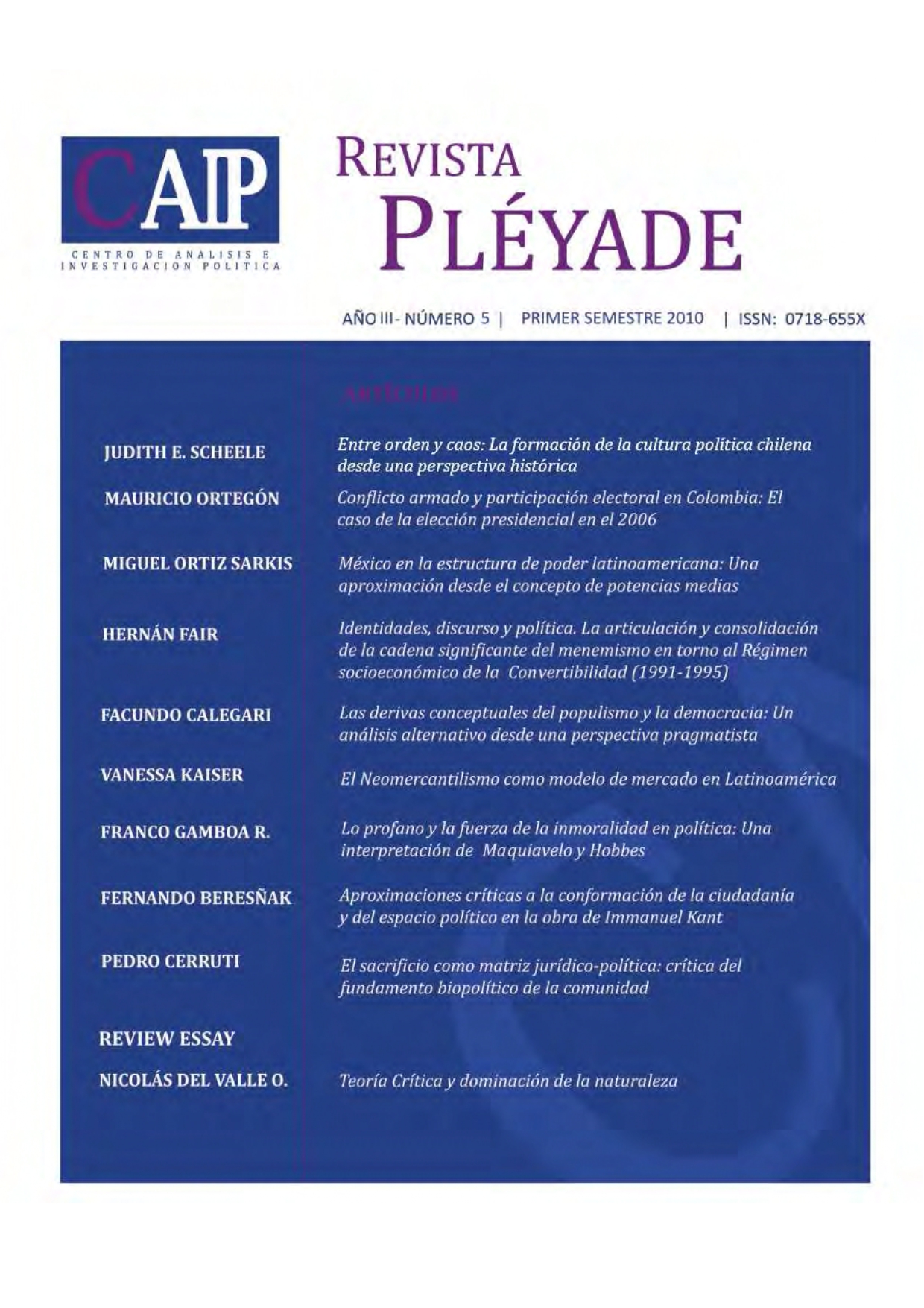
Publicado 2010-07-18
Palabras clave
- liderazgo político,
- poder,
- Estado,
- acción política,
- moralidad
- reproducción del poder,
- Maquiavelo,
- Hobbes ...Más
Cómo citar

Esta obra está bajo una licencia internacional Creative Commons Atribución-NoComercial 4.0.
Resumen
El artículo tiene el objetivo de vincular las obras como El Príncipe y El Leviatán al análisis del poder y del liderazgo. En ambos casos, se trata de una interpretación de Maquiavelo y Thomas Hobbes, a partir de una concepción de “lo político”, donde la reproducción del poder y la dominación constituyen los factores determinantes para el control del Estado, la acción política y el divorcio permanente respecto de consideraciones morales. De hecho, las aspiraciones éticas en el manejo del poder representan sólo un conjunto de opciones personales, que se alojan en el fondo la consciencia sin ningún impacto en la práctica realista de la política profana. Para la reproducción del poder, los líderes se alinean en la lógica de la efectividad, preocupada más por los resultados y la instrumentalización permanente de las demandas en la sociedad dominada.